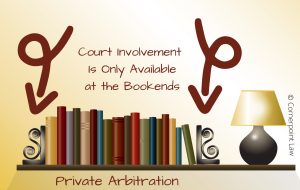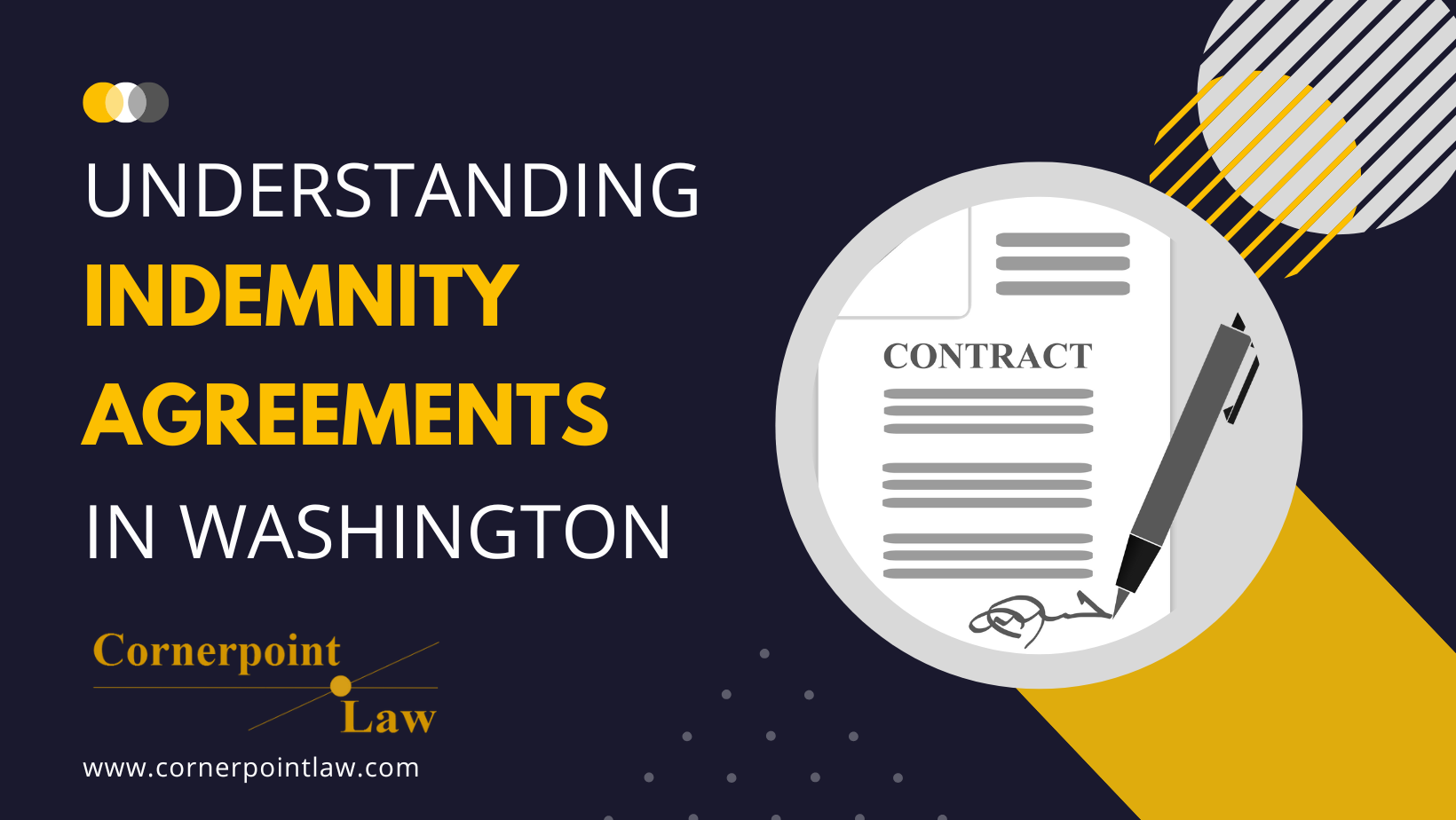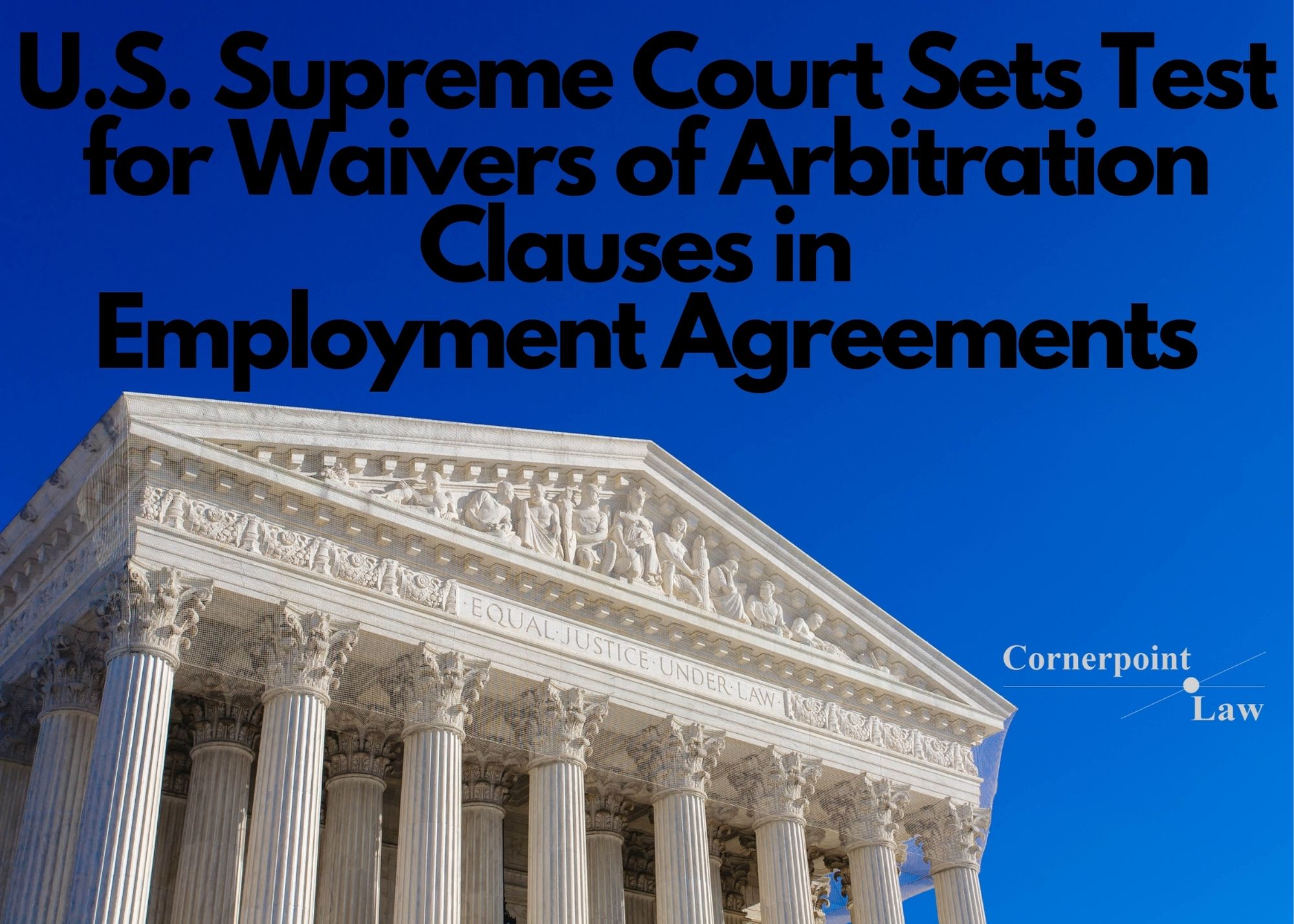Judges Cannot Intervene During Private Arbitration
February 26, 2021
Unauthorized use and/or duplication of blogposts without express and written permission is strictly prohibited. Excerpts and links may be used, provided that full and clear credit is given, and with appropriate and specific direction to the original content.
The author of this post can be reached by phone at 206-693-2718 or by email.
Switching Tracks Midcourse Is Prohibited: A Cornerpoint Case Pop
By Stacia Hofmann
Cornerpoint Case Pops are dedicated to summarizing relevant, new cases — and their business and risk management lessons — in bite-size posts.
Arbitration has been a frequent subject of discussion on the Cornerpoint Law blog because it comes up so frequently in business transactions, employment law, contract drafting, and litigation and disputes.
You can learn about the difference between private arbitration and a court of law in this video.
It is this attorney’s opinion that arbitration has its pros and its cons, which should be weighed on an individual basis. Why? Because there’s no switching tracks midcourse. Case in point: last year, the Washington Supreme Court confirmed that parties in arbitration must take the bad with the good. Unilaterally abandoning arbitration for a judge and court of law halfway through the arbitration is not allowed.
The Case: Burgess v. Lithia Motors, Inc., Washington Supreme Court, 471 P.3d 201, September 3, 2020
Case Background
The plaintiff employee worked for the defendant employer. She made various claims against the employer for employment discrimination and wrongful termination.
The employee had signed an employment contract with an arbitration clause governed by federal law (called the Federal Arbitration Act (FAA)).
The employee and employer agreed to submit the dispute to arbitration per the arbitration clause. They did not go to court or ask a judge to determine the arbitration clause’s enforceability.
During arbitration, the parties engaged in discovery. The employee filed a motion to compel with the private arbitrator, asking the arbitrator to hold that the employer was not playing by the discovery rules. The private arbitrator denied the employee’s motion.
The employee then filed a lawsuit in court, asking a judge to end the arbitration because the employer had breached the arbitration agreement. The judge refused to do so, citing a lack of jurisdiction. The employee appealed.
A Party May Only Seek Court Intervention at the “Bookends” of Arbitration
The Washington Supreme Court confirmed that judges may serve two roles in conjunction with arbitration. First, they may determine if a dispute should go to arbitration before arbitration. Second, they may determine if an arbitration award should be modified or vacated after arbitration.
Judges Cannot Intervene During Arbitration
The Washington Supreme Court held that judges cannot intervene during arbitration. After all, the whole purpose of arbitration is to provide an alternative venue to court. If a party could switch tracks midcourse, there would be increased delays and expenses for all parties.
Because the parties had agreed to and started arbitration, no judge had the jurisdictional power necessary to decide if the employer breached the agreement. The parties had to continue in arbitration.
Key Takeaway
Although the outcome of the case is not surprising, it is a clear reminder from the state’s highest court that cherry picking venues is not allowed. We haven’t yet found a perfect dispute resolution system, and arbitration can be just as risky as a court of law, so it should be just as carefully considered.
Email or call me to see if Cornerpoint can help with your questions about contracts or arbitration.
This blog is for informational purposes only and is not guaranteed to be correct, complete, or current. The statements on this blog are not intended to be legal advice, should not be relied upon as legal advice, and do not create an attorney-client relationship. If you have a legal question, have filed or are considering filing a lawsuit, have been sued, or have been charged with a crime, you should consult an attorney. Furthermore, statements within original blogpost articles constitute Stacia Hofmann’s opinion, and should not be construed as the opinion of any other person. Judges and other attorneys may disagree with her opinion, and laws change frequently. Neither Stacia Hofmann nor Cornerpoint Law is responsible for the content of any comments posted by visitors. Responsibility for the content of comments belongs to the commenter alone.





